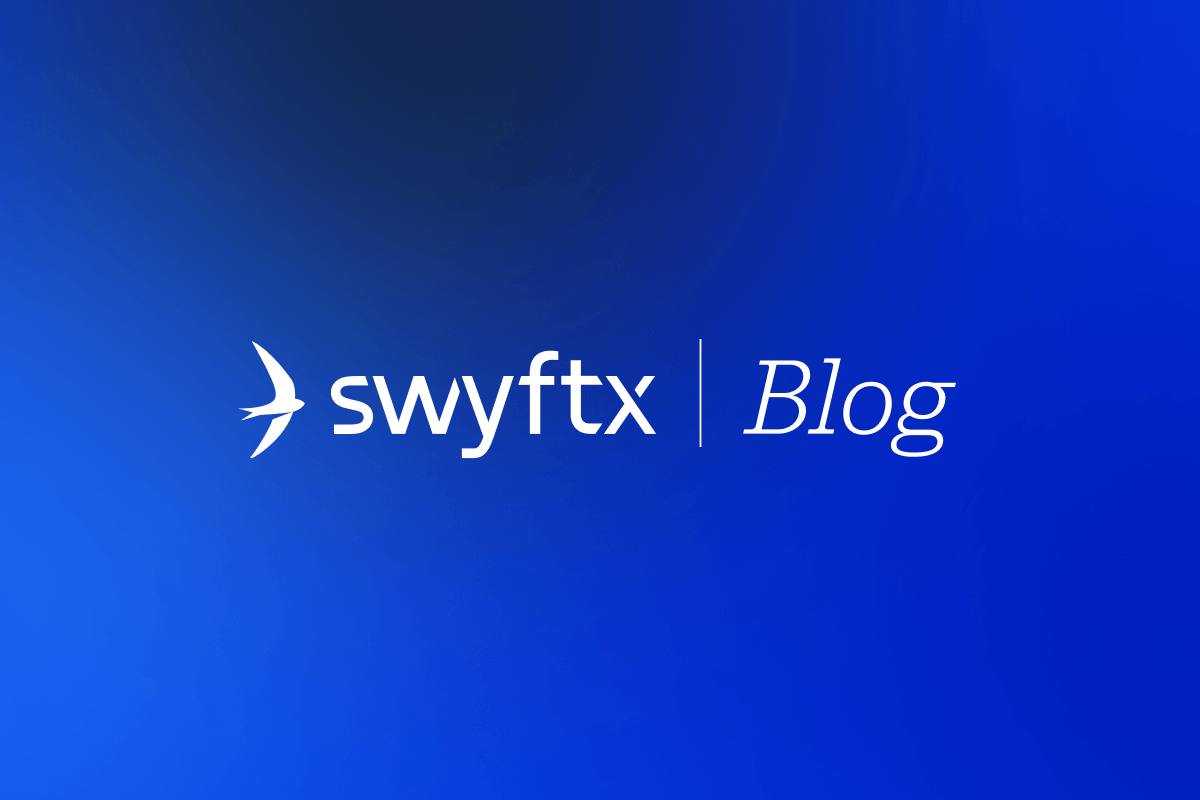For many people, the term “blockchain” is synonymous with cryptocurrency. However, blockchain technology has a host of other applications outside the sphere of decentralised finance (DeFi). Perhaps the most powerful potential use of a blockchain is the ability to facilitate secure and transparent elections. Considering the controversy that has surrounded recent elections æ particularly in the United States – the need for a trustworthy blockchain-based election system is more important than ever.
Looking for Bitcoin? Register for Swyftx today to get some for yourself!
How Blockchain Can Improve Future Elections
Around the world, almost all voting systems rely on a paper ballot – either cast in person or via the mail. However, this method has several drawbacks. Namely, a paper ballot isn’t verifiable and lacks reliability and traceability (not to mention it’s inefficient). A movement toward a digital voting system is the natural evolution of voting, but the security of this process is of critical importance. A poorly guarded voting database could be rigged by cyberhacking groups, individuals, or other criminals. Elections require privacy as well as security, transparency, and immutability. A blockchain voting system offers a solution that meets all of these criteria.
A blockchain-based system will meet the technical requirements that elections need while simultaneously preventing bad actors from casting multiple ballots. Blockchain accurately and securely stores all data, affording voters data protection, and maintaining voter privacy. In addition to privacy, blockchain allows for the transparency of all data, allowing all who participate to verify their vote and see the results in real time. This concept is known as immutability and means that once data (e.g., a vote) has been stored, it cannot be retrospectively changed.
Problems with the Current Voting System
There are several issues facing the current voting system. From limited access to polling locations and voter suppression to gerrymandering and voter roll purges, several obstacles impede a free and fair election process – even in nations with an excellent democratic track record. The lasting impact of the global coronavirus pandemic also introduced an appetite for absentee or postal voting, which can pose issues in its own right (such as mail fraud).
One of the most prevalent issues facing the current system is voter fraud. This most commonly manifests as impersonation fraud at the polls. Occasionally, someone who has died, moved away, or has lost their voting right because they are a convicted felon, remains registered. When someone else uses their name to cast an extra vote, this is considered voter fraud and can influence the result of an election if widespread.
Two other common types of voter fraud include false registration and duplicate voting. These can sometimes overlap. False registration occurs when someone uses a fake name and/or address to register, or when they claim residence in an area where they do not live (and therefore should not be eligible to cast a vote) Duplicate votes happen when someone registers in multiple jurisdictions and casts multiple votes in the same election.
How Cardano Will Improve Elections
The Cardano blockchain may be the answer to all the issues democracies face with the current voting system. There are several members of the blockchain community who believe the protocol can be used in the future for national elections. As a matter of fact, in a 2020 interview with Cointelegraph, Cardano founder Charles Hoskinson said: “We’ve been building the infrastructure for that.”
Hoskinson went on to explain in that same interview that Cardano blockchain can offer more complex functions than competitors like Ethereum – particularly in terms of its ability to handle large amounts of simultaneous data, as one would encounter in a national election. Therefore, with some research and experiments, Hoskinson thinks the Cardano platform will become the new industry standard for blockchain-based voting. An interesting sidebar is that Charles Hoskinson is also a co-founder of Ethereum.
Although Cardano may be better-suited than other DeFi blockchains to facilitate the millions of votes expected in an election, it still requires scalability upgrades before this can become a reality. In the Cointelegraph article, Hoskinson said that he thinks this will take time. He believes he needs to first test the system via experiments in smaller, local, and state elections before Cardano can be used to replace legacy systems for elections on a national scale. According to Hoskinson, they have a team in Lancaster, England that regularly publishes research for blockchain-based elections.
The Future of Cardano
Cardano becoming the network for hosting transparent and reliable elections is just one of the ambitious project’s many upcoming goals. In 2021, Cardano’s blockchain entered its “Goguen Era” by adding smart contract capabilities. This was a significant upgrade to the protocol and drew it one step closer to facilitating wide-reaching elections.
As touched on earlier, Cardano will need to improve its scalability and efficiency if it is to host national elections. To accomplish this, the team is currently working on the “Basho Era”, where developers will put an emphasis on optimising Cardano’s blockchain infrastructure. Some in the community have mused that Cardano will add sidechains – parallel databases to the main blockchain – to improve its ability to process large amounts of data.
How to Buy Cardano
Cardano is one of the biggest cryptocurrencies by market cap. It has shown incredible promise despite its relative youth, and the project has an incredibly experienced and reputable team headed by Ethereum co-founder Charles Hoskinson. You can buy Cardano in Australia by creating a trading account with Swyftx. Simply sign up, verify your identity and deposit funds to start trading ADA and other listed cryptocurrencies instantly. Want to learn more about cryptocurrency? Check out our beginner’s guide to investing in cryptocurrency.
Ben Knight

